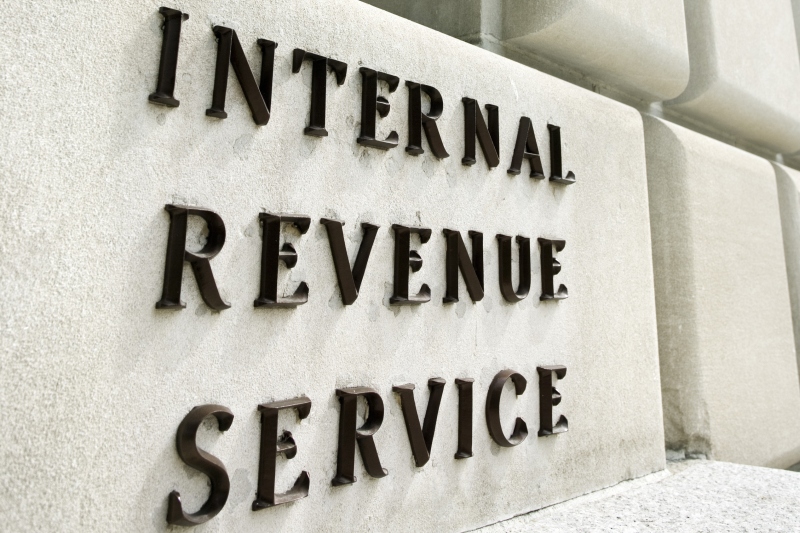On March 27, 2020, U.S. president Donald Trump signed a $2.2 trillion economic relief bill in an attempt to stave off hardship for the many millions of Americans affected by the pandemic. This is a third legislative response following $8.3 billion in emergency funding for health care and $192 billion to assist individuals impacted by COVID-19.
The Canadian COVID-19 measures have been communicated to you in three separate newsletters. Below is the summary of the measures that will likely benefit taxpayers who are American citizens that reside in Canada or Canadians with U.S.-based businesses.
Am I eligible for the stimulus check?
Have you filed a tax return for either 2018 or 2019? To receive a stimulus check, you must be a U.S. citizen, a U.S. resident or a Green-card holder and you must be current with your U.S. income taxes (unless you receive Social Security benefits and are not required to file). The amount is based on your qualifying income (i.e., employment, self-employment or pension) of at least USD$2,500 for either 2018 or 2019, depending on whether your 2019 taxes are done before an assessment is made. If you do not have qualifying income, you may still be eligible for a stimulus check if you meet either the tax liability test or the gross income test.
Single taxpayers with a valid social security number will get $1,200 if they made $75,000 or less. Married couples making less than $150,000 combined will receive $2,400. Payments will be increased by $500 for each dependent child under the age of 17. Dependents with Individual Taxpayer Identification Numbers (ITINs) are not eligible for the rebate.
Unfortunately for those in higher tax brackets, payments decrease by $5 on every $100 dollars over the $75,000 or $150,000 threshold up to $99,000 or $198,000 and then the payment is phased out altogether.
U.S. citizens don’t have to apply. Payment is made automatically if the IRS has your banking information. If not, the IRS will send a check to the most recent address listed on your return. The IRS will send a follow up notice within 3 weeks of issuing a check notifying that the check has been issued. The payments will commence on April 13, 2020 and must be made by no later than December 31, 2020. If you still wish to receive a payment through a direct deposit, the IRS is currently working on a portal to update banking details, but the bank account must be in the U.S.
The payment is an “advance refund of credit” that will be reconciled on the 2020 Form 1040. If a taxpayer receives a payment that is less than the full amount based upon 2019 (or 2018) and qualifies for the full $1,200 based upon 2020, the taxpayer will receive the difference as a credit on the 2020 Form 1040. The taxpayer does not have to repay the credit if the 2020 numbers make them ineligible.
In contrast to the $2,000 monthly Canadian Emergency Response Benefit (CERB) payments that are taxable for both U.S. and Canadian tax purposes, the U.S. stimulus check is not taxable for U.S. tax purposes. Its treatment in Canada will be similar to the CERB.
Have there been any changes regarding retirement funds?
Yes. If you own a 401K or other U.S. individual retirement account, you don’t have to take a minimum required distribution (MRD) in 2020. This way, you aren’t put in a position to have to sell investments at a time when the market is…well…less than favorable.
If you need more than the minimum distribution this calendar year, you can withdraw up to $100,000 without penalty. The penalty-free withdrawal only applies if it is a direct result of the Coronavirus (i.e. you, a spouse, or a dependent tested positive or you suffered financially because of the pandemic). Any income taxes owed on the larger distribution can be spread out over three years from the date the distribution was taken. In addition, you can return the money to the account before the end of that three-year period without worrying about the size of the contribution, as you normally would.
Be careful on the Canadian side if the withdrawal is not treated as a loan. Recognizing income in the current year without enough foreign tax credits for taxes paid in the U.S. due to the three-year deferral will result in double taxation.
Meanwhile, in Canada, RMDs for RRIF accounts have also been reduced by 25% for 2020 due to market performance.
What about deductions for charitable donations?
It’s a great time to be charitable! The CARES Act introduces a new deduction for up to $300 in charitable contributions per year, which extends beyond the 2020 taxation year. The deduction is only available to people who don’t itemize deductions and is calculated by subtracting the donation amount from gross income.
There are stipulations around the donation, including that it must be a cash donation to a qualified charity and not a donor-advised fund. Under the Canada-US Income Tax Treaty, Americans residing in Canada should be eligible for this deduction even when they contribute to a Canadian charity.
For 2020, cash donations made to public charities are not limited to the 60% of the adjusted gross income (AGI) threshold, rather 100% of cash contributions may be claimed as an itemized deduction. So, if you donate a million dollars and that is your AGI, you can deduct the entire million to have no taxable income in 2020. If you donate a million dollars and your AGI is less than that, the difference will be carried forward to future years. The permanent law limits the deduction to 60% of the AGI.
Who is covered by the expanded Unemployment Benefits Program?
The plan covers U.S. residents who are unemployed, partly unemployed or cannot work for coronavirus-related reasons, and the expansion intends to fill the gap between what an employee receives from unemployment benefits (40-50% of their wage) and a full paycheck.
The government top-up is $600 per week for eligible workers, and eligibility depends on whether you are eligible to receive state or other unemployment benefits. The total amount you receive depends on where you live, as maximum weekly state benefits differ.
Since you are a Canadian resident and thus covered under the Canada-U.S. Social Security Totalization Agreement, you will not be eligible for this benefit.
Is there relief for student loan payments?
Payments on federal student loans, including direct loans, Perkins loans and Federal Family Education Loans owned by the U.S. Department of Education, are automatically suspended from March 13 through September 30, 2020.
Has Sec 965 Installment payment been extended?
We have previously addressed the extended due dates to both CRA and IRS. You can find a comprehensive summary here. Your 2019 Section 965 installment payment has been automatically extended to July 15, 2020.
I am a Canadian and own a U.S. company. Are there any breaks for me?
Absolutely! There are five major programs that address the distress caused by unemployment. The U.S. Small Business Administration’s Economic Disaster Loan Program has been expanded and offers very favorable loan terms and the potential for loan forgiveness.
If you are a Canadian owning a U.S. company, you are eligible to participate in the program, however, the company must have been in business in the U.S. for at least one year; the loan must be personally guaranteed by management; and the collateral used to cover the loan must be US-based. The above strict requirements do not apply to U.S. companies with U.S. majority ownership.
**
There are many more relief provisions including large forgivable loans available to U.S. businesses. Please feel free to share this newsletter with friends and family. If you wish to receive more information or have questions on how to navigate the government programs and initiatives, please contact me.
Where to find us
4-209 Speers Road
Oakville, ON, L6K 0H5
Canada
Contact Us
Meetings are by appointment only.
Phone: +1 855 640 1730
Local: +1 905 845 1194
Fax: +1 833-203-9641
Email: mail@hcbtax.com




